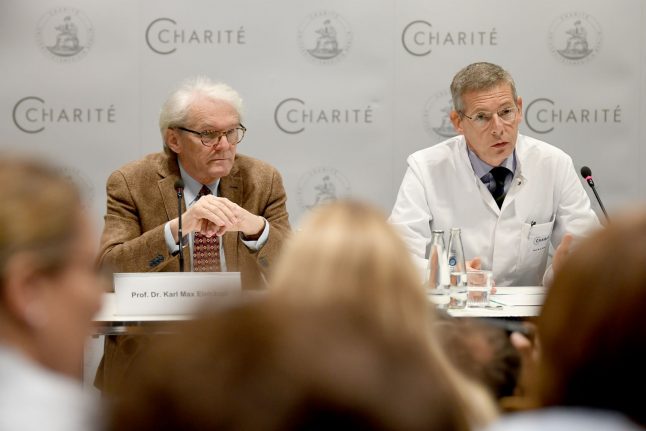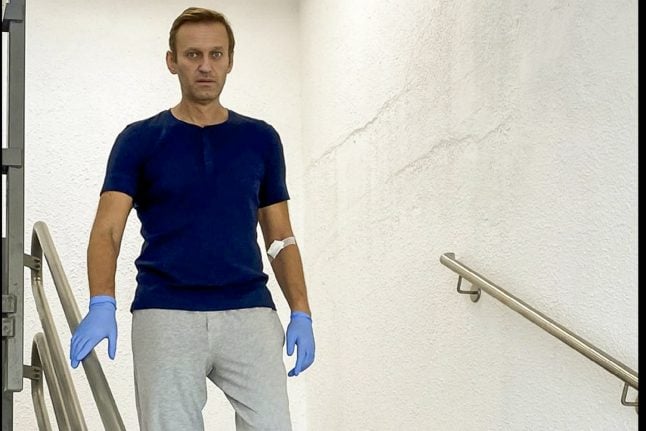“The impression and the findings that we now have, as well as those provided by colleagues from Moscow, suggest that it is highly plausible that it was a case of poisoning,” said Kai-Uwe Eckardt, a leading doctor at Berlin's Charité hospital.
The hospital's chairman Karl Max Einhäupl added that his “health condition was improving from day to day and he is no longer in life-threatening danger.”
Although Verzilov is still under observation in the intensive ward, he is conscious and did not require any artificial support, said Eckardt, adding that he expected the patient to make a complete recovery.
Verzilov, who has both Canadian and Russian citizenship, was admitted to a clinic in Moscow one week ago after falling ill following a court hearing.
The 30-year-old was initially treated in intensive care and later regained consciousness.
Late on Saturday, he was flown to Germany by the Cinema for Peace Foundation, an NGO which has long supported the band's activism.
Verzilov's estranged wife, Pussy Riot's Nadezhda Tolokonnikova, told
Sunday's edition of Bild that he was the victim of “either an act of
intimidation or attempted murder”.
The allegations of foul play come as the investigation of the poisoning of Russian double agent Sergei Skripal and his daughter in Britain gathers pace.
Relations between Russia and the West have been severely strained over the
Skripal attack, and London has accused two Russian agents of the attempted
assassination.
'Not a drug problem'
Einhäupl said there were no indications that Verzilov's illness stemmed from an infection or was metabolic in nature, “therefore we must assume that there had been an exogenous delivery of the toxin that we haven't been able to identify and which we may not be able to identify.”
The toxin that affected Verzilov caused anticholinergic syndrome which disrupts the nervous system, said Eckardt.
The German doctor added that tests were being run to determine the substance but chances of finding it were slim as they were done almost a week after it was used.
Einhäupl ruled out the possibility that it was a case of substance abuse by Verzilov himself.
“Such substances are extremely rare in drug circles and we have no indication that it was a drug problem,” he said.
“For someone to take this drug in such quantities, the person must have suicidal tendencies, and we have absolutely no indication of such intentions” in this case.
The Charité chairman added that “on the question of how this toxin found itself in the body is something that we cannot say, and that's also not our job.”
Verzilov's collapse on Tuesday came after he and his girlfriend Veronika Nikulshina, also a Pussy Riot activist, had served a 15-day jail sentence along with two other band members for invading the pitch during the World Cup final in July to highlight Russian police abuses.
Pussy Riot has repeatedly been in the crosshair of the Russian authorities.
In 2012, three of its members, including Tolokonnikova, were arrested for
performing a song protesting against President Vladimir Putin in a central
Moscow church.



 Please whitelist us to continue reading.
Please whitelist us to continue reading.
Member comments